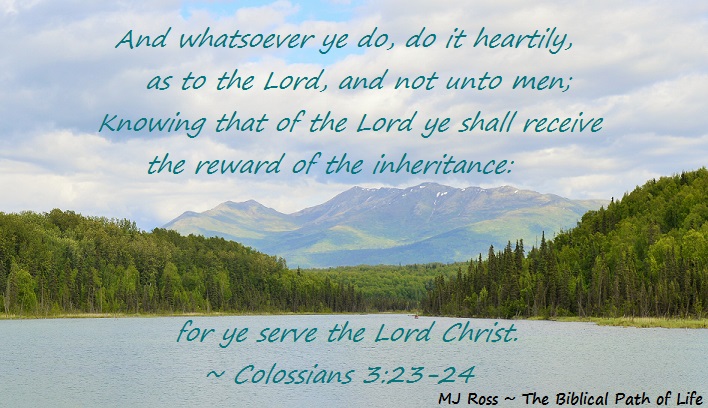
Colossians 3:23-24
If you have ever read the book of Jeremiah, you understand that the messages God gave Jeremiah to share were extremely difficult for him to deliver. However, Jeremiah was always faithful – even when he was beaten, imprisoned, and his fellowman rejected him. He willingly obeyed God’s command to deliver His message calling Judah to repent and return to God. Jeremiah had little, if any, hope of the possibility of God’s people truly repenting and returning to God, yet he faithfully delivered the messages God had. What courage!
There was one particularly interesting time God had him speak. There was a nomadic people that lived among the Israelites called the Rechabites (also known as the Kenites). They were descendants of Moses’ father-in-law, who had chosen to live among God’s people in tents. They occasionally are mentioned as those who helped God’s people (see Jael in Judges 4 and Jehonadab with Jehu in 2 Kings 10). God sent Jeremiah to speak to these people, take to them to the house of the Lord, and give them wine to drink. Jeremiah did what God told him to do. Read their response. “6. But they said, We will drink no wine: for Jonadab the son of Rechab our father commanded us, saying, Ye shall drink no wine, neither ye, nor your sons for ever: 7. Neither shall ye build house, nor sow seed, nor plant vineyard, nor have any: but all your days ye shall dwell in tents; that ye may live many days in the land where ye be strangers. 8. Thus have we obeyed the voice of Jonadab the son of Rechab our father in all that he hath charged us, to drink no wine all our days, we, our wives, our sons, nor our daughters; 9. Nor to build houses for us to dwell in: neither have we vineyard, nor field, nor seed: 10. But we have dwelt in tents, and have obeyed, and done according to all that Jonadab our father commanded us.” (Jeremiah 35:6-10). What was wrong with drinking the wine? They had made a commitment to their father that they would not. They chose to obey their father, Jonadab. God had a point He wanted to make to His people. “13. Thus saith the LORD of hosts, the God of Israel; Go and tell the men of Judah and the inhabitants of Jerusalem, Will ye not receive instruction to hearken to my words? saith the LORD. 14. The words of Jonadab the son of Rechab, that he commanded his sons not to drink wine, are performed; for unto this day they drink none, but obey their father’s commandment: notwithstanding I have spoken unto you, rising early and speaking; but ye hearkened not unto me” (Jeremiah 35:13-14). God made a very good point. God commended the Rechabites for their faithfulness to the command given to them by their father. Their father had given commands, and his children obeyed. God had given the Israelites commands, yet they had disregarded them. God reminded them He had sent prophets to tell them. “… saying, Return ye now every man from his evil way, and amend your doings, and go not after other gods to serve them, and ye shall dwell in the land which I have given to you and to your fathers: but ye have not inclined your ear, nor hearkened unto me” (Jeremiah 35:15b). God’s people did not listen. They did not obey God’s command to return to Him. This family of Rechab had willingly chosen to obey the words of their father, yet God’s people had willingly chosen not to obey the words of God. The Rechabites were destined to live as a nomadic people – without homes, farms, vineyards, or a place to call home. Yet this people obeyed their earthly father. On the other hand, God had given His people a land where they built homes, had farms and vineyards, and a place to call their homeland. However, the Israelites did not obey God. God blessed the Rechabites.
Because God’s people did not repent or choose to obey God, God allowed the enemy to destroy Jerusalem and take them captive. Jeremiah witnessed the destruction of his beloved city, and his people carried captive to a foreign land. Yet even through rejection and witnessing Jerusalem’s destruction and the people’s captivity, Jeremiah still mourned and prayed for his people. He even remained to encourage the few left in the land with God’s Words. Jeremiah understood something that had not even been written yet in his day: “23. And whatsoever ye do, do it heartily, as to the Lord, and not unto men; 24. Knowing that of the Lord ye shall receive the reward of the inheritance: for ye serve the Lord Christ” (Colossians 3:23-24).
Do you obey God’s Word heartily, as to the Lord, and not unto men?